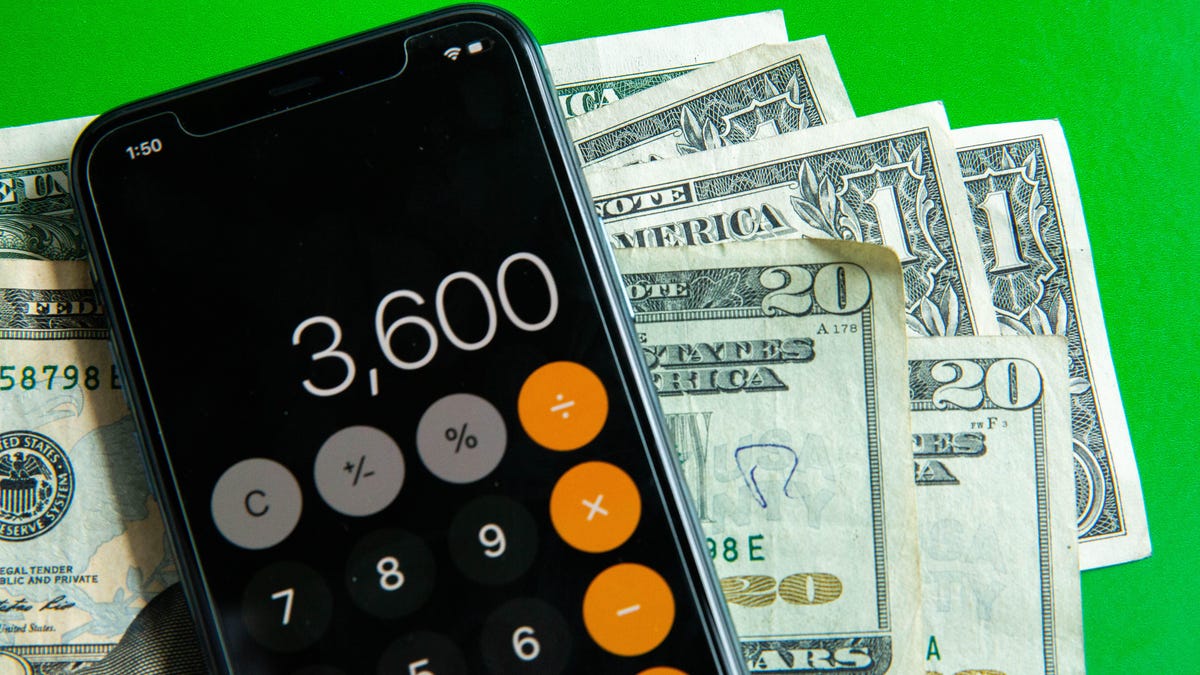The IRS won't tell you how much stimulus money you'll get. Here's how to figure your amount
You want to make sure you received the right amount in your third stimulus check.

Calculate your stimulus payment yourself to double-check the amount from the IRS owes you.
Like many, you may have received your third stimulus check straight from the IRS by now, but it's in your best interest to double-check the amount you got. The IRS is keeping track of lots of forms, figures and payments this spring, and depending on what the IRS had on hand for you when it calculated your stimulus check amount, it may not have used your current information. Our stimulus check calculator can help you quickly get an estimate for how much you qualify to receive and whether the IRS underestimated your payment, meaning you may be due a so-called "plus-up payment."
Did you make less money in 2020 or have a baby? Maybe you gained a dependent? Any of those things could trigger a bigger third stimulus check than the IRS calculated for you. We'll explain the details below. And here's the deal with a possible fourth stimulus check, and how to calculate your child tax credit total for up to $3,600 per kid. This story is frequently updated.
Calculate how much stimulus money you should get this time
The IRS looks at a lot of figures to calculate how much your qualify for, including if your adjusted gross income, or AGI, is less than $80,000 (for single taxpayers), $120,000 (as heads of household) or $160,000 (for couples filing jointly) and how many dependents you have and their ages. You do math for you, our calculator takes everything into account to give you an estimate. The calculator does not retain your personal details.
Below we show who will get the full stimulus amount and when you'll completely phase out of receiving a payment. As an individual or couple's income goes up, the size of the partial payment gets smaller. (Here's our first stimulus check calculator and here's the calculator for the $600 second check.)
If you think the check size you receive is in error and doesn't match your below estimate, it's possible you may need to claim the rest of your payment at a later time.
Stimulus check income limits
| Full $1,400 per person maximum (based on AGI) | Not eligible (based on AGI) | |
|---|---|---|
| Individual taxpayer | Less than $75,000 | $80,000 or more |
| Head of household | Less than $112,500 | $120,000 or more |
| Married couple filing jointly | Less than $150,000 | $160,000 or more |
What if the calculator says you qualify for more? What is a plus-up payment?
If you've already received your third stimulus check but the amount is smaller than what our calculator says you qualify for, the IRS may have underestimated the size of your payment. If that is your situation, you could be due a plus-up payment that will make up the difference between what you received and what you are now eligible to receive. Among the reasons you could qualify for more money is if the IRS used your 2019 tax forms to determine your amount but your income dropped in 2020 compared to 2019 or you added a child or dependent on your 2020 tax return. If this is the case, the IRS will send you a separate payment to cover the difference you qualified for this year.
Why else could your stimulus payment not match the calculator estimate?
There other reasons your stimulus check could be smaller than you were expecting -- or why you've not received one at all. Maybe your payment was based on your 2019 taxes instead of 2020 (see below for more on this situation). Checks that are missing altogether can be tracked using a few tools and missing money can be claimed in a few different ways. Read our guide to stimulus check problems for solutions to these and other issues.
Dependents can help bring you money in 2021 and 2022
New rules for the third stimulus check will affect you if you have dependents.
- Each dependent counts for $1,400.
- Dependents are no longer restricted by age. College students, adult children with disabilities and older adult relatives will now count toward $1,400 each.
- Unlike the rules around the first two stimulus checks, you can't receive any money if you exceed the upper income limit, even if you have dependents.
An extreme example of the last one: A single parent of four who makes $120,000 won't qualify, where a single parent with four dependents who makes $119,000 will still get some amount of money. The amended bill also includes families with mixed citizenship status; that is, where at least one family member is a US citizen.
Your dependents can help bring in more money beyond the third stimulus check. With the expansion of
For more information on stimulus checks, here's what to know about the IRS timeline for sending checks
, what parents of 2020 babies should do to recoup missing money from the first two payments, and everything we know so far about a potential fourth stimulus check.


